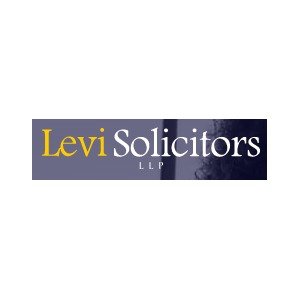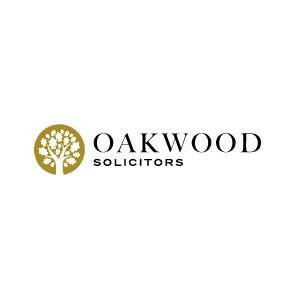Best Conveyancing Lawyers in Leeds
Share your needs with us, get contacted by law firms.
Free. Takes 2 min.
Free Guide to Hiring a Real Estate Lawyer
List of the best lawyers in Leeds, United Kingdom
About Conveyancing Law in Leeds, United Kingdom
Conveyancing is the legal process involved in transferring ownership of property from one person or entity to another. In Leeds, and throughout England and Wales, conveyancing is a vital stage in most property transactions whether residential or commercial. It includes carrying out searches, handling contracts, transferring funds, and ensuring all legal obligations are met before, during, and after the sale or purchase. Leeds, being a vibrant city with a dynamic property market, has a well-established network of solicitors and licensed conveyancers ready to assist buyers and sellers.
Why You May Need a Lawyer
There are several scenarios in which the expertise of a conveyancing lawyer is essential. First, if you are buying or selling a property, a lawyer will guide you through the legal paperwork, making certain your interests are protected. Second, complexities often arise when dealing with leasehold properties, remortgaging, shared ownership schemes, or property inheritance. Third, property disputes, boundary issues, or title problems can require urgent legal intervention. Lawyers also play a significant role in new builds, buy-to-let investments, or when transferring property between family members. Engaging a qualified conveyancing lawyer helps avoid costly mistakes, ensures compliance with local laws, and provides peace of mind throughout the process.
Local Laws Overview
Conveyancing in Leeds is governed by the legal framework of England and Wales. Key aspects include following the processes set out in the Law of Property Act 1925, ensuring compliance with the Land Registration Act 2002, and adhering to anti-money laundering regulations. Local factors, such as Leeds City Council property searches, environmental assessments, and planning permissions, are particularly relevant. Stamp Duty Land Tax (SDLT) also applies and must be paid on properties above certain price thresholds. The conveyancing process typically involves conducting local authority searches to check for planning issues, flood risks, or other local matters that might affect the property. Leeds solicitors will also liaise with the local land registry office to confirm title details and register the new owner once the transaction is complete.
Frequently Asked Questions
What exactly is conveyancing?
Conveyancing is the legal process of transferring property ownership from one party to another. It involves preparing, signing, and submitting the necessary documents, carrying out searches, and ensuring funds are properly transferred.
Do I need a conveyancer in every property transaction?
While it is not a legal requirement to use a conveyancer or solicitor, it is highly recommended. Professional assistance helps ensure all legal steps are completed correctly, protecting your interests throughout the process.
How long does the conveyancing process take in Leeds?
The process usually takes between 8 to 12 weeks, but this can vary depending on the complexity of the transaction and how quickly information is provided by third parties.
What are local authority searches?
Local authority searches are checks carried out with Leeds City Council to uncover issues such as planning permissions, building regulations compliance, road schemes, or other matters affecting the property.
What are the main costs involved in conveyancing?
Typical costs include solicitor or conveyancer fees, local authority search fees, Land Registry charges, and Stamp Duty Land Tax if applicable. Your lawyer will provide a detailed breakdown of these costs in advance.
Can I do conveyancing myself?
While it is legally possible to complete a conveyancing transaction on your own, it is not advisable unless you have strong legal knowledge. Mistakes can lead to serious financial and legal consequences.
What happens on completion day?
On completion day, your conveyancer will transfer funds to the seller's lawyer, and you will receive the keys to the property. The ownership is officially transferred and documentation is sent to the Land Registry for updating.
How do I know if there are any legal issues with a property?
Your conveyancer will carry out a series of searches and checks to identify any potential legal problems such as restrictive covenants, easements, boundary disputes, or outstanding planning permissions.
What is an exchange of contracts?
The exchange of contracts is a critical stage where both buyer and seller become legally committed to the sale. After the exchange, neither party can withdraw without financial penalties.
Is leasehold property conveyancing different from freehold?
Yes, leasehold transactions often involve more complexity, including reviewing the terms of the lease, dealing with managing agents, and checking for outstanding service charges or ground rent.
Additional Resources
- Leeds City Council: Provides local property information and search details. - HM Land Registry: Maintains property title records and offers guidance on registration. - The Law Society: Offers a searchable directory of regulated solicitors in Leeds. - Council for Licensed Conveyancers: Regulatory body for conveyancers, offering consumer advice. - Citizens Advice: Offers information and guidance on property and legal issues. - Leasehold Advisory Service: Resource specifically for leasehold property matters.
Next Steps
If you are considering buying, selling, or remortgaging property in Leeds, your next step should be to consult a qualified conveyancing solicitor or licensed conveyancer. Gather all documents relating to your property and be clear about your objectives. Compare legal professionals based on experience, customer reviews, and fee structures. Arrange an initial consultation to discuss your situation and receive tailored advice. Do not hesitate to ask questions about the process, timeframes, and potential issues that may arise. Acting early and seeking prompt legal help will help ensure a smoother and more secure transaction.
Lawzana helps you find the best lawyers and law firms in Leeds through a curated and pre-screened list of qualified legal professionals. Our platform offers rankings and detailed profiles of attorneys and law firms, allowing you to compare based on practice areas, including Conveyancing, experience, and client feedback.
Each profile includes a description of the firm's areas of practice, client reviews, team members and partners, year of establishment, spoken languages, office locations, contact information, social media presence, and any published articles or resources. Most firms on our platform speak English and are experienced in both local and international legal matters.
Get a quote from top-rated law firms in Leeds, United Kingdom — quickly, securely, and without unnecessary hassle.
Disclaimer:
The information provided on this page is for general informational purposes only and does not constitute legal advice. While we strive to ensure the accuracy and relevance of the content, legal information may change over time, and interpretations of the law can vary. You should always consult with a qualified legal professional for advice specific to your situation.
We disclaim all liability for actions taken or not taken based on the content of this page. If you believe any information is incorrect or outdated, please contact us, and we will review and update it where appropriate.














